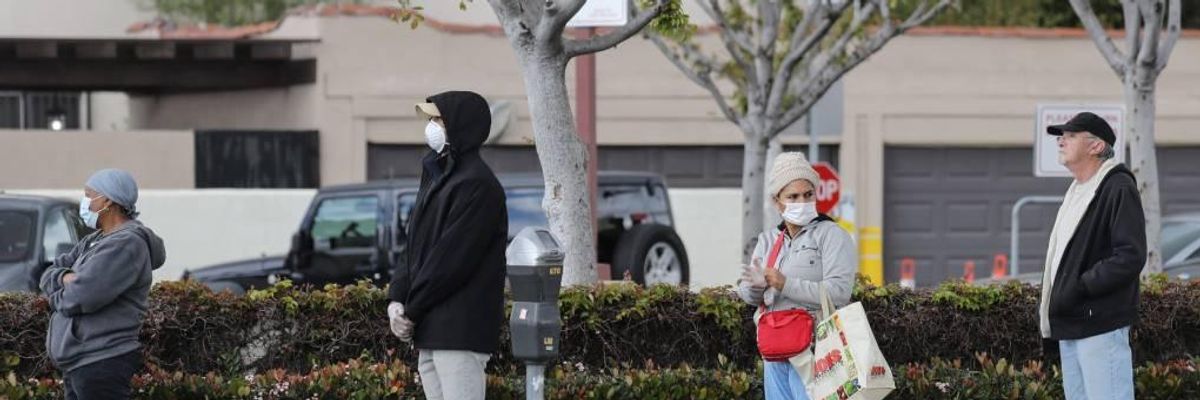Are you (un)settling in to this brave new reality yet? Beyond hopeful signs of unity, there's a looming sense that we've only just glimpsed how bad things might get in this pandemic crisis. The adjustments in many of our lives to totalized online sociality (quarantinis, anyone?), teleworking (if we're fortunate to have that option), and nesting activities (paralleling claustrophobic and/or conflictual experiences) is coupled with the realization of escalating illness and the exposure of endemic inequalities in society.
Medically, the experts are warning that we're still only partway along on the upward slope of the viral curve, with the peak (staggered across a cascade of shifting hotspots) remaining at least weeks away. Politically, the vacuity of federal guidance leaves a patchwork of uneven responses, and invites more authoritarian interventions if conditions worsen. The call to help "flatten the curve" isn't a panacea, but mainly a way to allow our already-imperfect healthcare system to catch up to the spike in critical cases.
"Whatever we make of this extraordinary time intellectually, there's a kind of suppressed emotional terror that one can discern between the lines (and perhaps in our own quiet moments)."
All the while, it feels like the pendulum of emotional processing swings from being too alarmist to not alarmist enough. At times it's almost too easy to slip into a privileged routine of Zooming into work, puttering around the immediate vicinity and cleaning out neglected spaces of accumulation, living local with a limited (carbon) footprint, catching up with old friends and getting to know colleagues in new ways, and more (insert your own litany here). Life somehow tries to normalize, no matter the baseline.
Moments of crisis can help clarify what's truly important in our lives, amplifying a sense of gratitude for things that previously seemed trivial or even tedious, and prompting us to reach out to people who have mattered to us along the way. Crises illuminate our dependency on one another, and on remote chains of production and distribution--but also highlight a resiliency and capacity to live within limits. Perhaps some of these (re)discoveries will remain once the acute crisis abates and societies attempt to reset.
Yet other changes may linger in our lives as well, and they may not be those grounded in gratitude, solidarity, sustainability, and resilience. The social fabric is changing in real-time, redefining how we do business and, in the process, affirming the hegemony of technology in our lives. It's not only that everyone who has access is using it without hesitation right now (mooting preexisting questions about privacy, veracity, etc.), but also the ways that surveillance tools have been deployed to track the virus.
Just to highlight a few notable examples that are worth bookmarking before they might soon take hold more broadly: Russia has used a mass facial recognition network; South Korea has used robust location tracking and proximity tools; Israel has used vast personal data for mapping movements; and China has required tracking apps for its opaque risk coding system. While the ability to deploy these techniques in a crisis is remarkable, the implications of maintaining these systems after the fact are worth considering.
On the other side of the ledger, there's been a marked upsurge of commentary about how societal responses to the virus have yielded environmental gains--either directly as people rely less on carbon-producing methods of transportation and conveyance, or indirectly by noting the parallels between coronavirus and climate change (an unseen threat, potentially existential in nature) and surmising that if nothing else this unwelcomed moment has demonstrated a pervasive ability to embrace radical change.
Still, whatever we make of this extraordinary time intellectually, there's a kind of suppressed emotional terror that one can discern between the lines (and perhaps in our own quiet moments). We watch with bated breath as the escalating infection and mortality counts come in, and the plummeting financial reports scroll by in the crawl. There's no bailout for the anxiety and anguish attendant to an imposed journey through uncharted waters--only the insistence of momentum, one precious breath at a time.

